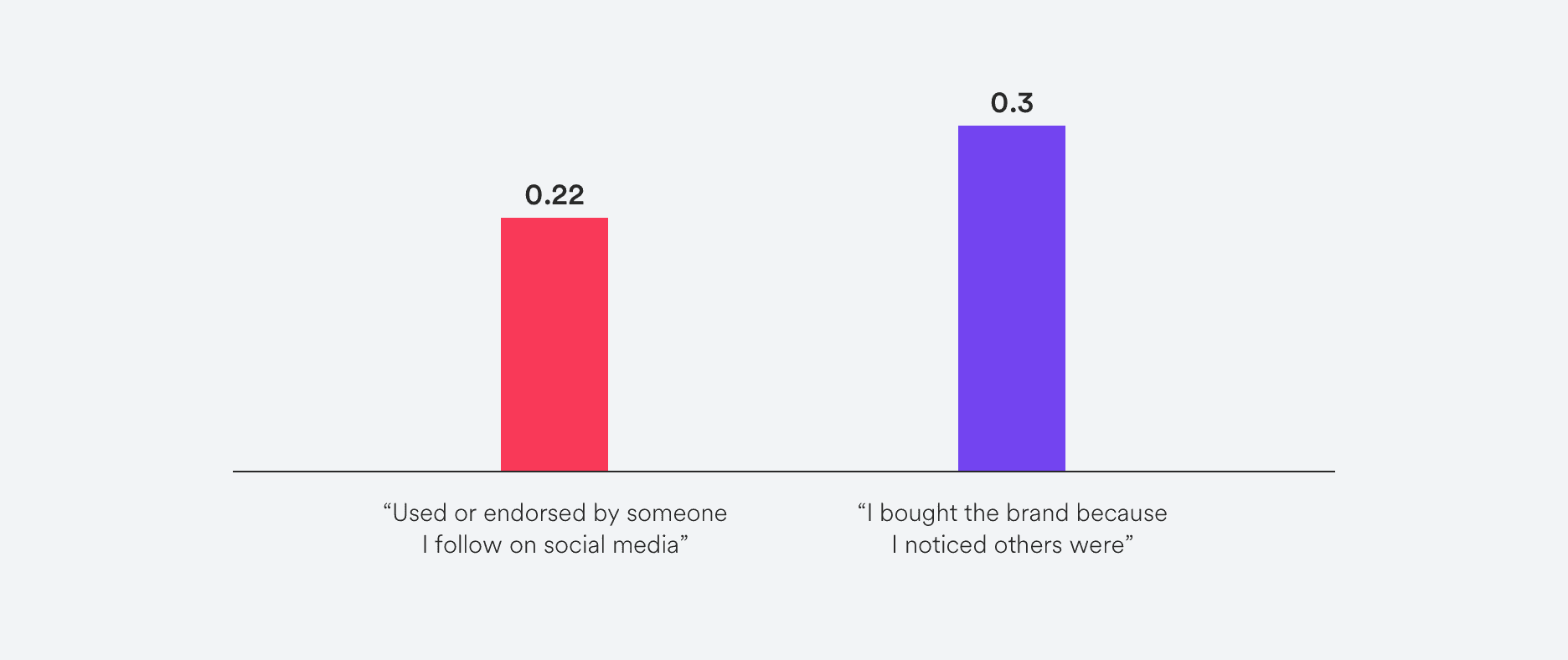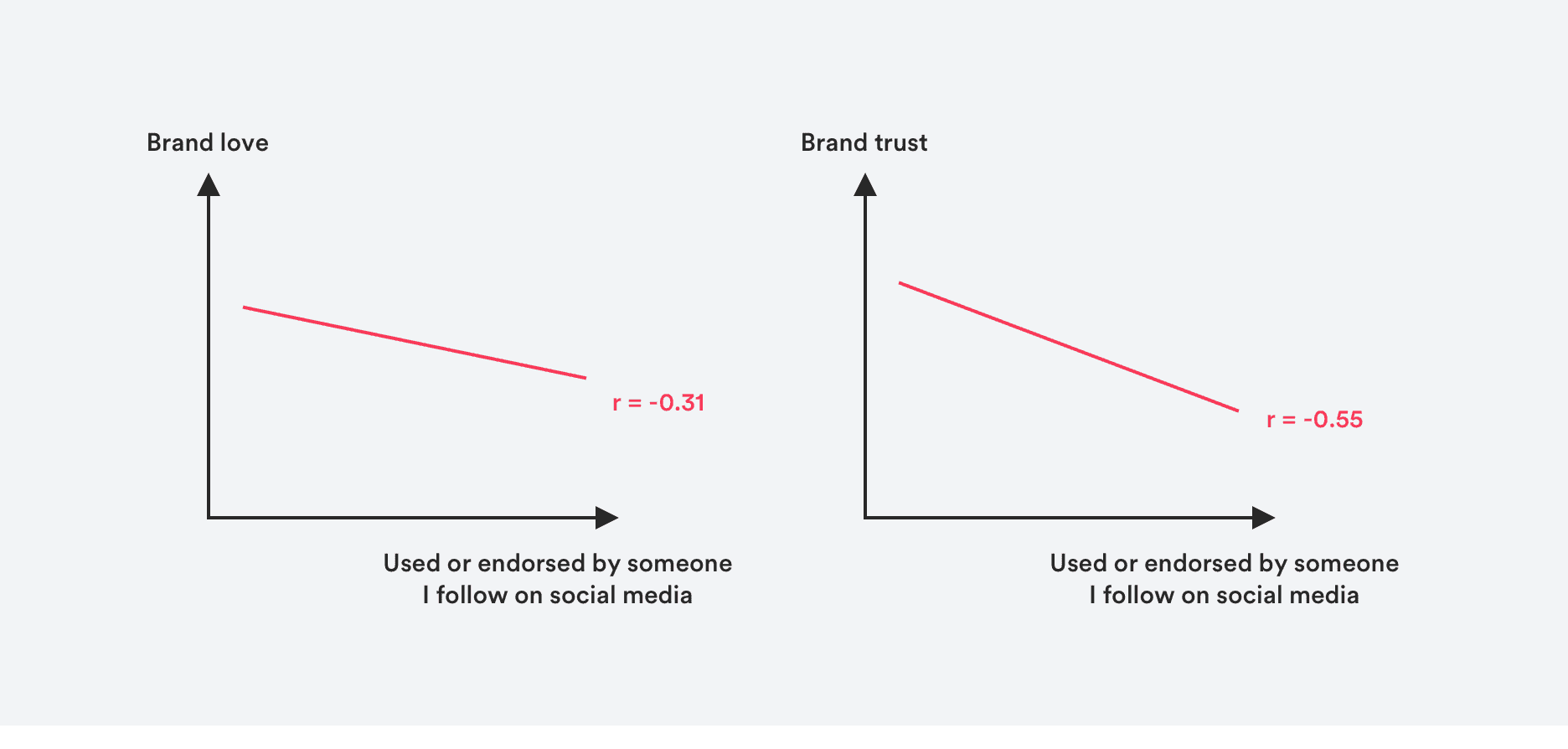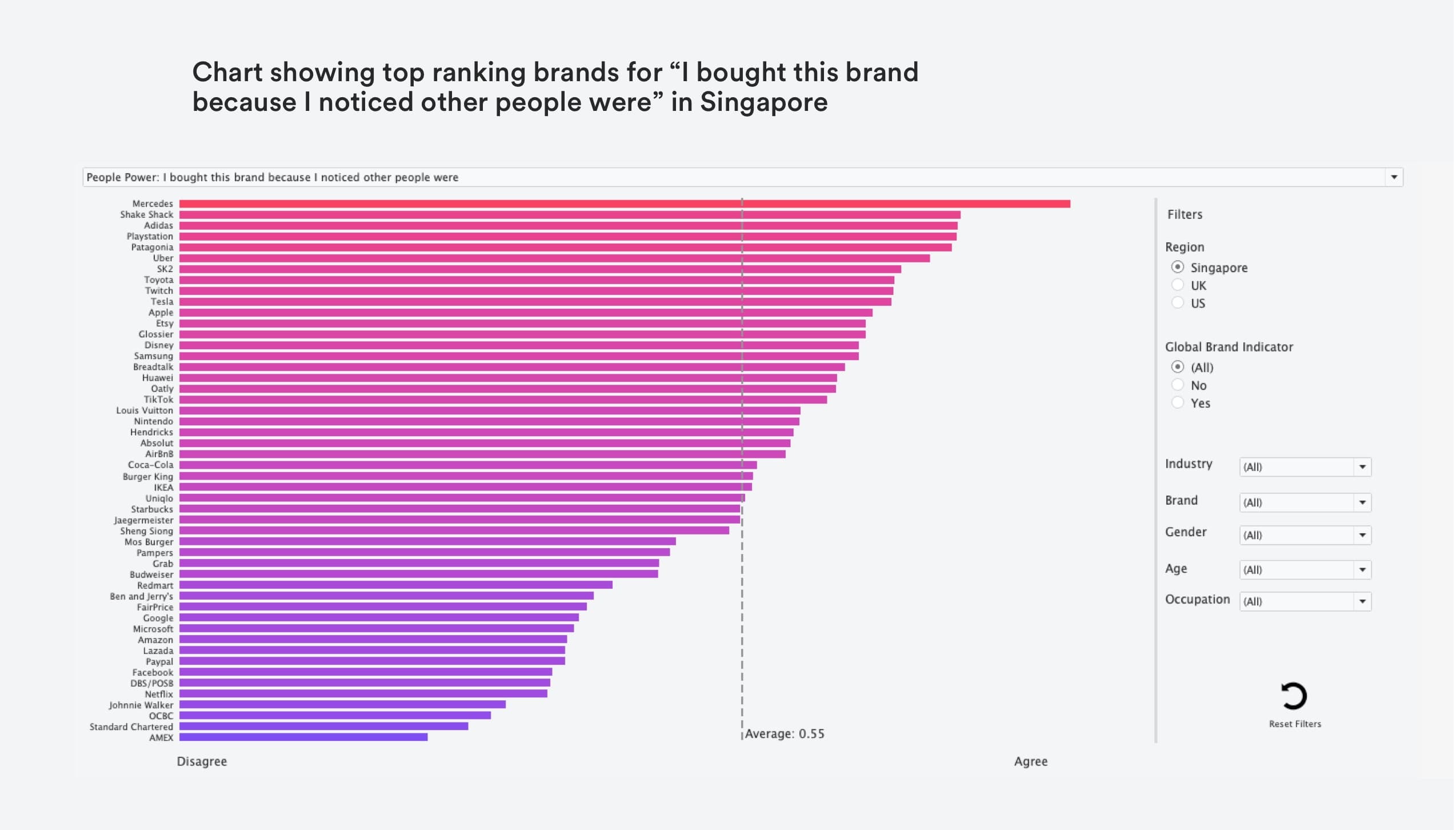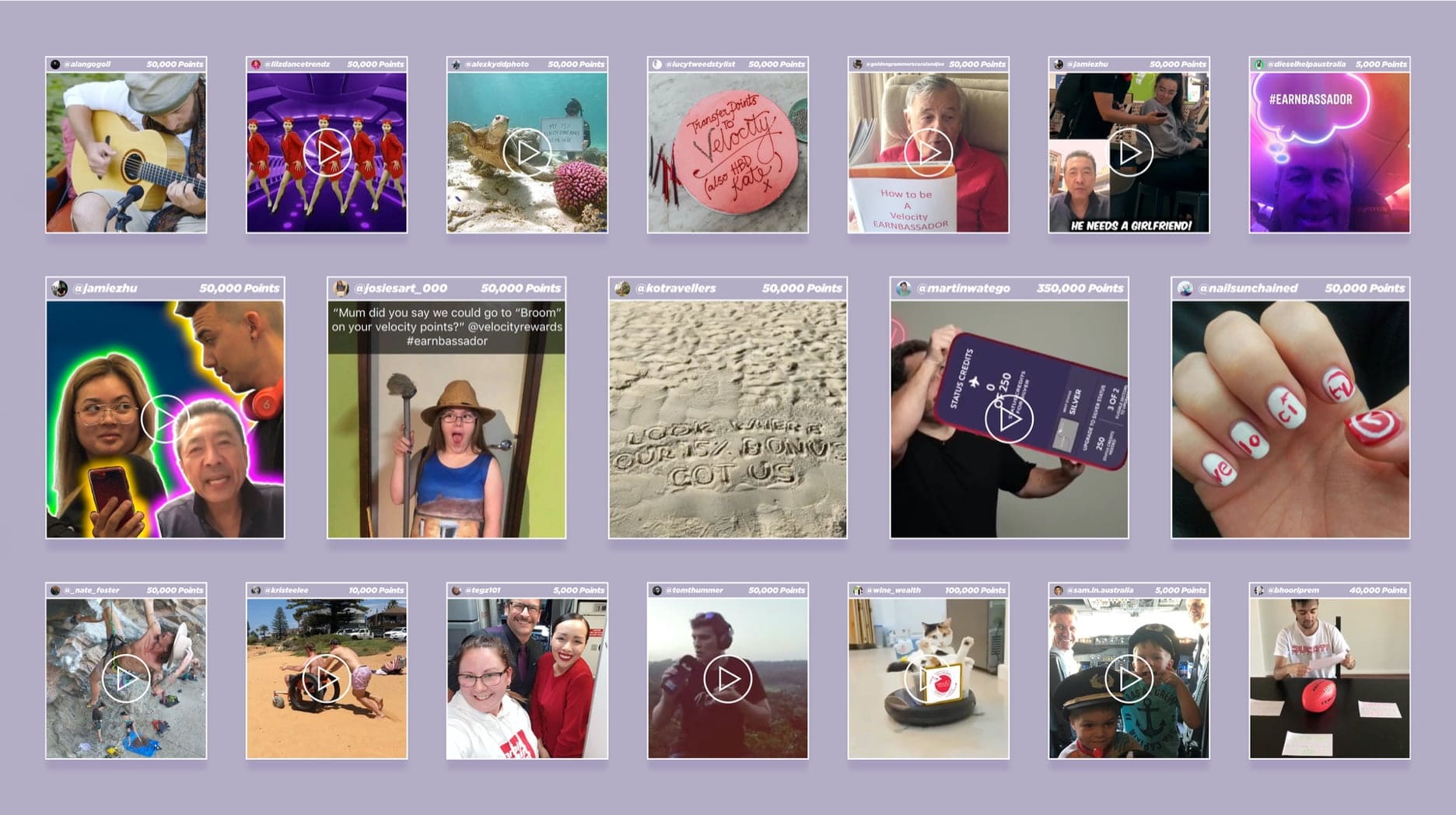Be it the pretty ones, funny ones, athletic ones or philosophical ones, influencers are viewed with esteem — and so wield the power to affect the brand affinities and purchase decisions of consumers.
And for the past few decades, brands have been hoping for some of that stardust to rub off on them so that their offerings are perceived to be of higher quality, more credible and therefore more desirable to consumers. Influencer marketing thus forms a cornerstone of brands’ marketing strategies; today, the global influencer marketing industry stands at a hefty USD$13.8billion and is expected to continue growing (Statista, 2021).
Overall, that investment seems to be pulling its weight. According to our 2021 Participation Brand Index that surveyed over 4,900 respondents across the UK, US and Singapore, brand love is positively correlated with brands that have been endorsed or used by someone online.

Chart showing a positive correlation between brand love with brand endorsements and pervasiveness of brand across all regions
However, for Singapore, brand endorsements seem to do more harm than good. Not only are brand endorsements negatively correlated with brand love (r=-0.31), it is also negatively correlated with brand trust (r= -0.55). Simply put, Singaporeans are less inclined to trust and love a brand that uses endorsements by influencers.

Chart showing negative correlations between brand love/trust with “being used or endorsed by someone I follow on social media” for the Singapore market
While this aberration can be attributed to a desensitisation towards the inundation of #sponsored posts online, the negative correlation points towards a particular cultural sensibility of Singaporeans – as increasingly discerning consumers who have grown weary and skeptical of endorsements.
Being highly savvy social media users, Singaporeans are well-trained detectors of insincerity and are unafraid to call out perfunctory captions or perceived ‘brand whoring’, where influencers parade a smorgasbord of products online, making one wonder how much they are making from such endorsements.
Case in point, Singaporeans expressed their distaste towards the Ministry of Finance’s Budget 2018 campaign, which they found to be a ham-fisted attempt to draw eyeballs; influencers chosen to front the campaign were not only inept in discussing high finances, but their content also largely assumed the form of templatized captions that made the entire exercise appear thoughtless and ingenuine.

The negative correlation points towards a particular cultural sensibility of Singaporeans as increasingly discerning consumers who have grown weary and skeptical of endorsements.
Influencers who entertain multiple brand endorsements also stand to have their credibility discounted. Back in 2017, local influencer Melissa Koh’s heavily sponsored wedding drew flak for being overly commercialised, making what should be an intimate affair feel fake and somewhat insincere.
Today, endorsements by influencers no longer feel like a verification of quality, but a transactional affair devoid of the intimacy, genuineness, and credibility that previously formed the bedrock of influencer marketing.

Today, endorsements by influencers no longer feel like a verification of quality, but a transactional affair devoid of the intimacy, genuineness, and credibility that previously formed the bedrock of influencer marketing.
Recent surveys suggest that already one-third of Singaporeans have no trust in influencers (YouGov). At the same time, we know ‘social proof’ is a powerful driver of purchase decisions; seeing others visibly enjoying a product or service shows that it is desirable and popular, and being seen to enjoy it can serve as an implicit endorsement of its features or virtues. We can see this in action across a wide range of brands in various sectors in our Participation Brand Index.

Chart showing top ranking brands for “I bought this brand because I noticed other people were” in Singapore
According to a 2020 study by DeVries Global, Singaporean consumers, particularly Gen Z, are now looking to reviews from other consumers as a credible source, rather than relying on reviews from influencers, friends or family. Consumer reviews also came in as the top factor that will most likely drive trust in a brand’s quality and effectiveness. Influence and credibility is shifting from ‘endorsers’ and ‘recommenders’ towards those that have real experience using the product or service – its existing customers.
Organically-led communities like Wikipedia, Reddit and Quora have existed for decades as go-to platforms for opinions and advice. Today, social apps like Burpple and Shopee are also exemplars of how consumer reviews greatly impact purchase decisions; within subcultures, there are also Telegram or Facebook groups formed organically based off shared interests by ardent fans who have a penchant for exploring, reviewing and sharing what they know about brands out there.
While this is not something revolutionary, it shows that brands are not doing enough to harness the power of everyday consumers, who don’t necessarily even need monetary incentives to share content about the brand.
Being more attuned to what customers are doing and talking about can allow brands to engage intended audiences in ways that are more relevant and interesting to them. A brand that has succeeded in using social listening tactics and responding to its everyday consumers in Asia is IKEA.


Sure, customers have been expressing themselves through brands. Now, it is time for brands to express themselves through their customers.
With the advent of technology facilitating the ease of content curation and how individuals have acclimated to the habit of sharing content online, brands can start exploring co-creation opportunities that give everyday consumers an opportunity to interact directly with the brand. Not only can this bolster brand affinity, it will also generate more social chatter around the brand.

Ultimately, trust is unquantifiable. It is not about the number of likes or comments you get on a post, or the number of followers reflected next to your verification badge online. Rather, trust is built from a place of unadulterated authenticity; rather than curating a feed featuring the same few influential faces promoting “just another product” to their fans, brands can cede greater control to their consumers, who will have more to say and at no cost.

So, be it the pretty ones, funny ones, athletic ones or philosophical ones, everyday consumers now wield the power to affect the brand affinities and purchase decisions of other consumers. Moving forward, it is only by being people-powered that brands can truly imbue themselves with a sense of authenticity and credibility, thereby evoking brand love and trust amongst the more discerning consumers of today.